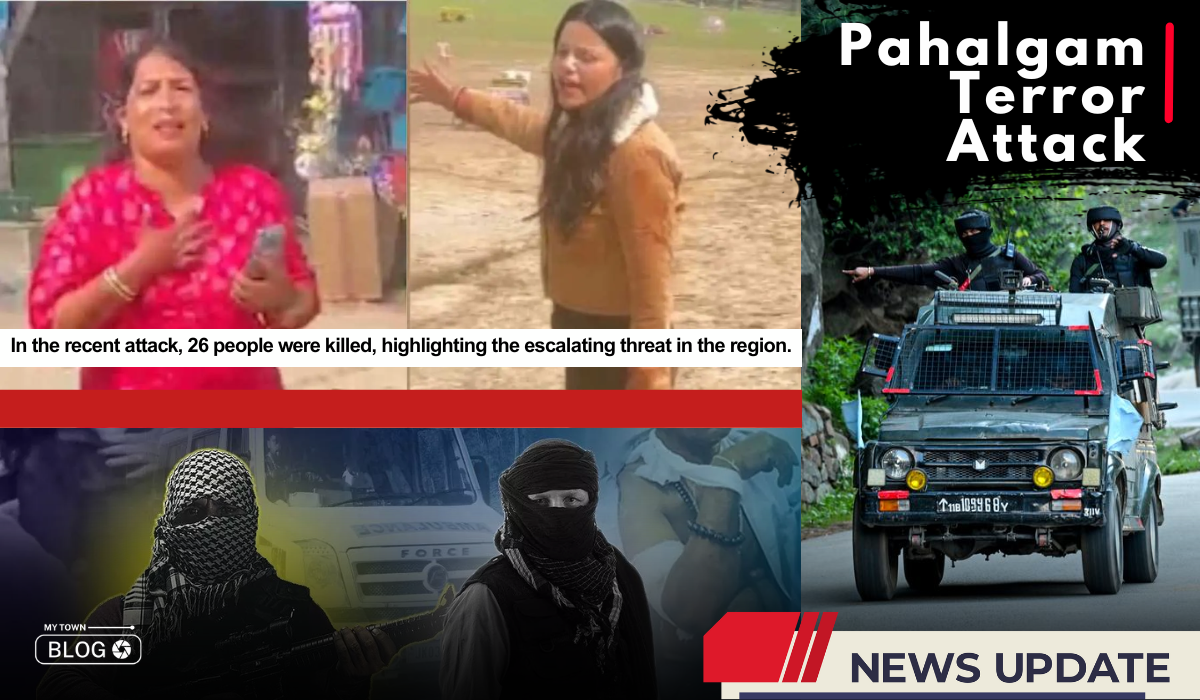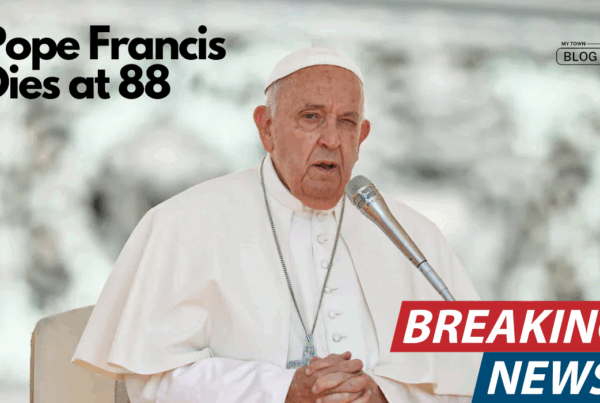On April 22, 2025, a brutal terrorist attack struck the peaceful valleys of Pahalgam, Jammu and Kashmir, leaving at least 26 people dead, most of them tourists. Among the victims was Vinay Narwal, a 26-year-old Indian Navy officer from Karnal, Haryana, who had just gotten married a few days before. What was supposed to be a joyful honeymoon turned into a horrifying end for the young officer and his fellow civilians.
Indian Navy Officer Vinay Narwal: A Life Cut Short
Vinay Narwal had tied the knot on April 16 and celebrated his wedding reception on April 19. A bright young officer serving with the Indian Navy in Kochi, he was currently on leave and had traveled to Kashmir for a short vacation with his wife. But his life was tragically cut short when he was shot dead during the terrorist ambush.
According to defense officials, Narwal had been serving the Navy for two years and was known for his discipline, dedication, and future potential. Back in Karnal, his family, friends, and neighbors are in deep mourning.
“He had recently gotten married… We received the news that he was killed by terrorists. He died on the spot,” said Naresh Bansal, a neighbor.
Heartbreaking visuals from his hometown show residents gathering at his residence to offer condolences and support to his grieving family.
“They Asked His Religion…” – Targeted Killing Based on Faith
Terrorists Executed Civilians After Checking Their Religion
One of the most chilling accounts from the Pahalgam massacre involves an incident where terrorists confirmed a victim’s religion before executing him.
“They asked his religion. Pulled down his trousers. Confirmed that he was Hindu. Then shot him dead.”
This line, which has circulated in survivor testimonies and media reports, points to a deliberate and targeted form of violence. Victims were interrogated about their faith, and in at least one instance, attackers used physical inspection to confirm the person’s religious identity before shooting him. This level of hate-motivated brutality marks a disturbing escalation.
Such tactics evoke fear and panic not only among tourists but also among minority communities across the region, sparking urgent questions about communal targeting and hate-fueled extremism in the Valley.
The Attack: Tourists Targeted in Cold Blood
The April 22 terrorist attack in Pahalgam is being regarded as one of the most vicious strikes on civilians in recent memory. According to reports by PTI and ANI, the terrorists began firing indiscriminately on a group of tourists and civilians. Eye-witness accounts and survivor statements suggest that the attackers even forced victims to recite an Islamic verse, and those who couldn’t were executed on the spot.
One of the victims, Santosh Jagdale, a 54-year-old businessman from Pune, was shot three times — in the head, behind the ear, and in the back — when he failed to recite the verse. His daughter, Asavari Jagdale, who witnessed the horrific moment, confirmed the chilling details.
Outrage and Condemnation: A Nation Mourns
The massacre has sparked nationwide outrage. Prime Minister Narendra Modi strongly condemned the attack, cutting short his official visit to Saudi Arabia to return to India.
“I strongly condemn the terror attack in Pahalgam. Condolences to those who have lost their loved ones. All possible assistance is being provided to those affected,” he wrote on X (formerly Twitter).
Across Jammu and Kashmir, especially in Srinagar, Baramulla, Poonch, Kupwara, and even the remote Khod village of Akhoor, candlelight marches were held in memory of the victims. The local population, irrespective of community, came together to denounce the brutal act and express solidarity with the families.
International Reactions: Global Condemnation
The impact of the Pahalgam attack wasn’t limited to India. Several international leaders issued strong statements of condemnation. Russian President Vladimir Putin expressed his condolences, labeling the attack as “inhuman.” United States Vice President JD Vance, who is currently on a diplomatic visit to India, also voiced his condemnation and offered support.
This global reaction highlights the shared concern about rising terror threats and the need for coordinated efforts to combat extremism.
A Pattern of Violence
Terrorist attacks in Jammu and Kashmir have often targeted security personnel and civilians alike, but the Pahalgam incident has particularly shocked the nation due to the sheer brutality and number of civilian casualties. Analysts believe this was a deliberate attempt to instill fear, disrupt peace in the region, and send a violent political message.
Security forces have launched a massive search operation across Pahalgam and surrounding areas. While no group has yet claimed responsibility, intelligence sources suggest that foreign-backed militant groups are likely behind the attack.
Rising Threat of Terrorist Attacks in Jammu and Kashmir
According to sources, despite government claims of normalcy in Jammu and Kashmir and the near destruction of the terrorists’ ecosystem, continuous intelligence reports have been received in recent times indicating that terrorists are plotting a major attack.
Security Forces and Tourists at Risk
The terrorists are not only planning sensational attacks on security forces at various locations but are also targeting tourists and minorities. This attack could occur during the peak tourism season. Security agencies have been repeatedly alerted about these threats.
Strengthened Security Measures Across Jammu and Kashmir
In light of these threats, a strict security arrangement was made across the entire region, including the valleys. Security agencies continuously reiterated that the situation was under full control. On April 8, Union Home Minister Amit Shah conducted a review meeting in Srinagar to assess the security scenario in Jammu and Kashmir. Discussions regarding the possibility of terrorist attacks were held during this meeting, which led to a comprehensive security evaluation, resulting in heightened security measures throughout the region.
A Tactical Move by Certain Neighboring Forces
Lashkar Commander Maulana Kasuri, during a meeting with terrorists in February in the occupied region, had warned that their jihadist activities would intensify in the coming days. Recently, a senior military official from a neighboring country made provocative statements regarding Kashmir. Therefore, this attack should not be seen merely as a terrorist attack.
International Implications: A Bid to Reignite the Kashmir Dispute
This attack is part of a long-standing strategy to portray Kashmir as an international, disputed, and violent region. Over the past five years, the issue of Kashmir has seen the neighboring country retreating on the global stage. The terrorist network in the region has been largely dismantled, and opposition against Kashmir Jihad has begun within the occupied territories as well.
On the international front, Kashmir is now rarely seen as a disputed territory. This attack is, therefore, an attempt to bring Kashmir back into the spotlight as an international issue and reintroduce the conflict to the global stage.
Conclusion: A Call for Justice and Unity
The Pahalgam terror attack has left a deep scar on the nation’s conscience. The loss of Lt. Vinay Narwal, a young officer full of dreams just beginning a new chapter in life, stands as a heartbreaking symbol of the senseless violence that continues to plague parts of Kashmir.
As India mourns, there is also a renewed call for justice, peace, and unity. The government has assured swift action, and the armed forces are on high alert to prevent further tragedies. In this time of grief, the country stands united — not just in anger, but in the resolve to uphold the values of peace, humanity, and resilience in the face of terror.
Also Read: Tragic New York plane crash kills Indian-origin surgeon, neurosurgeon husband, and children.








